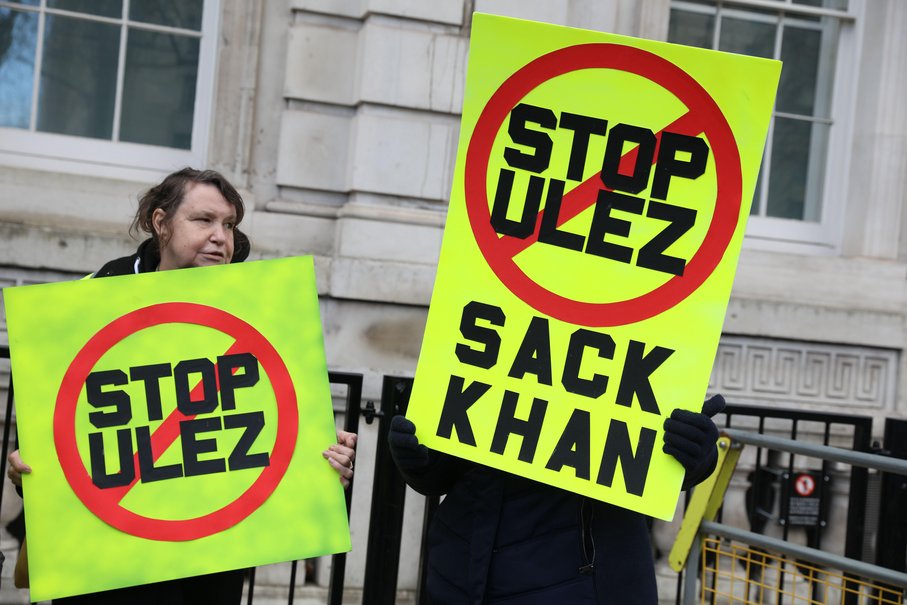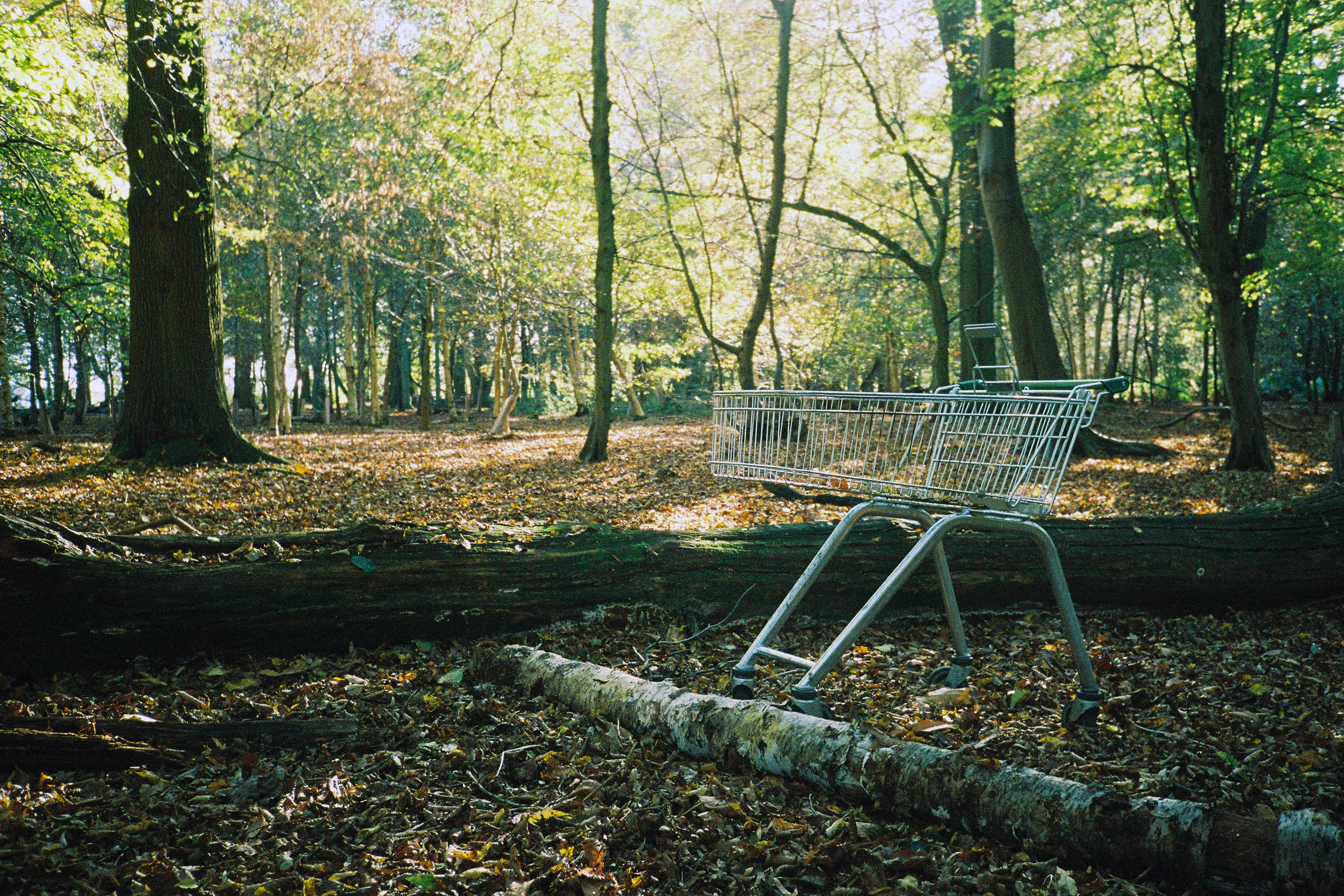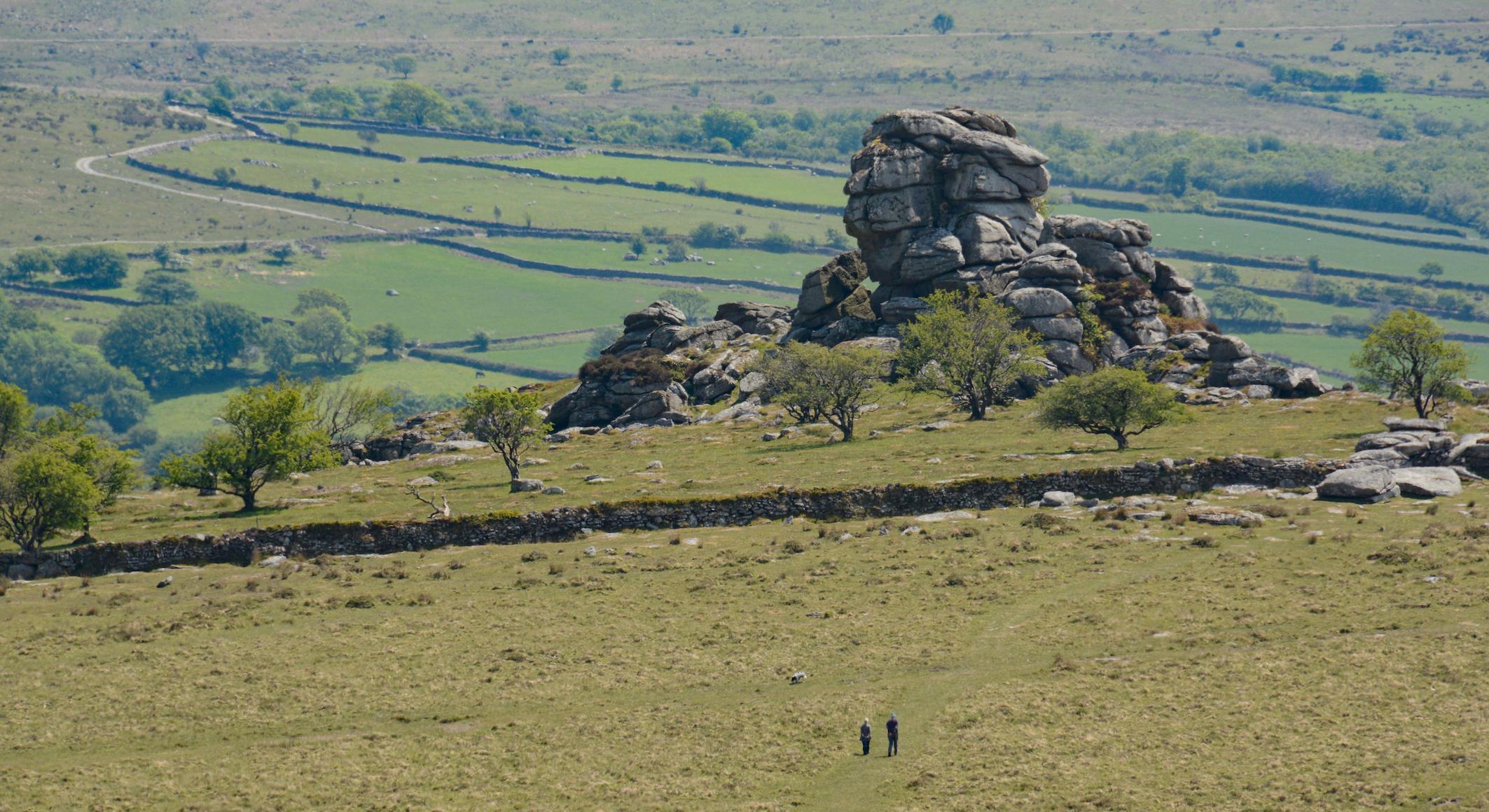The strange campaign to stop Britain's biggest solar farm
The Churchill family, dodgy science, dodgier election leaflets, NIMBYs, anti-NIMBYs and Net Zero all converge on a plot "the size of Heathrow" earmarked for enough solar panels to power 300,000 homes. But who is paying for the lobbyist meant to turn Parliament against the project?
The campaign to stop the UK’s biggest solar farm from being built has all the usual ingredients: a site of some historic and nostalgic significance, a tug of war on whether to keep the landscape bucolic or make it futuristic, and some pretty dubious climate arguments. But it also has a more unusual component: an anonymous donation large enough to allow the group to hire a Westminster lobbyist.
Stop Botley West (SBW), a group which involves local councillors from the Conservatives and Liberal Democrats, is campaigning to stop the planned 840MW solar farm to the west of Oxford. The site is set to be by far the largest solar farm yet built in the UK, with most of it sited on land owned by the Blenheim Estate of the Spencer-Churchill family.
Botley West could power around 300,000 homes if operating at theoretical peak output, (which solar farms never achieve due to weather constraints), and developers PVDP say the project will “make a significant contribution towards delivering energy security for the UK and achieving Net Zero targets”.
In an email to supporters on 4 December 2023, the group revealed that “SBW has been in receipt of a large donation for its campaign. We sincerely thank the anonymous donor on behalf of all the residents likely to be affected by this enormous development.”
The group has been seeking to employ a lobbyist to work in Parliament for a fee of ‘up to £700 per week’, who would “act as a liaison to encourage MPs to establish a new All-Party Parliamentary Group (APPG) broadening the discussion about UK renewables from one which is just about quantity to one where more consideration is given to alternative uses of the land on which renewables are built”.
Public consultations about the development have recently concluded, with SBW telling the BBC that the development is “entirely inappropriate”. Merton College, which owned 5% of the land to be used in the site, decided to pull out of the project, opting instead to “continue with our existing approach to sustainability and biodiversity” rather than using the land for part of the solar farm.
The SBW website makes a number of misleading claims about solar power that echo anti-Net Zero ideas pushed by groups like the Tufton Street-based Net Zero Watch. They suggest it could damage locals’ mental health, impact food security, provide no biodiversity gains, and ‘may never pay back its carbon debt’. The US Department for Energy says that solar panels pay off their carbon debt in between 1-4 years.
Liz Truss’s short-lived government briefly aimed to ban solar on most farmland, also citing food security. BusinessGreen editor James Murray said that Truss’s “posturing over food security is cover for the likely true source of their antipathy towards solar farms: they don’t like how they look.” Planning permission for solar farms on the “best and most versatile” farmland is already discouraged by government guidance for councils.
In November, SBW said that they “finally completed negotiations to open a charitable bank account, a critical step in our pathway to becoming a charity.”
“We will look forward to transparent reporting of our accounts and both past spending and future spending requirements should the Botley West proposal continue along the path of consideration for planning approval”, the group added.
SBW’s members include Alex David Rogers, a professor of ocean science at Oxford, former Conservative leader of Oxfordshire County Council Ian Hudspeth, and Lib Dem councillor Tim Sumner. The group has strong connections to local Tory MP Robert Courts, who serves as Solicitor General for the government.
The group has also included retired barrister Richard Devereux-Cooke, and Anne Gwinnett, who leads a local independent political group. These two members gave a presentation in June 2023 which one local described as containing ‘the Climate Change Denier’s Greatest Hits’. Devereux-Cook reportedly “blamed water vapour and natural processes for global warming”. Gwinnett’s Twitter/X account has retweeted posts saying ‘There is no #ClimateEmergency but there is a massive #ClimateScam’ along with conspiracies about the Covid-19 vaccine.
Another local councillor who is part of the campaign is James Spencer-Churchill, the current Duke of Marlborough. Spencer-Churchill was removed from control of Blenheim Estate by his father in the 1990s due to a well-reported drug addiction and three spells in prison. This decision was partially reversed on the old Duke’s deathbed, with James “to have control of Blenheim - insofar as the trustees let him do so”, according to Tatler. The Oxford Mail says the Duke “has made remarks against the proposals”, and he is a member of SBW. The Duke did not reply to my request for comment on whether he had funded SBW.
Opposing activist group ‘Botley West NIMBYs’ allege that SBW broke election laws in last May’s local council elections by putting out campaign flyers encouraging people to vote for candidates who opposed the solar farm. These flyers said they were published by Stop Botley West, but did not give the address of the publisher, which is required by election law, and may have benefitted Conservative and Lib Dem candidates who were publicly opposing the development.
The Electoral Commission told The Lead, “Election material requires an imprint, including the name and address of the person or organisation who has published the material. Where we receive information that indicates there is a possible breach of the law, in the first instance we will usually contact the campaigner to make them aware of the imprint requirements.” A spokesperson for the Commission added “we have contacted the campaigner to outline the law in relation to imprints to ensure they understand the rules.”
Thames Valley Police, who initially stated that it was “not deemed to be a police matter”, have now told The Lead that “The report has since been reviewed and a potential breach of electoral legislation was found. The publisher of the leaflet has been given relevant guidance.”
"They are not anonymous to everybody"
When asked whether SBW would report its accounts or reveal the source of the donation, SBW Chair Alex David Rogers, said, "SBW has carried out due diligence on the donor and there is no link to anti-renewable groups / climate sceptic groups. As an organisation seeking charitable status we have to do this."
Slightly confusingly, my follow up requests for comment about the donation were responded to by David Rogers, who is not Professor Alex David Rogers. He is also part of SBW but said he was speaking on behalf of another affiliated group: “Our small group (named 'SolarQ UK') is of local Oxford residents (not all directly affected by BWSF), none of whom has any commercial interest in either solar installations or any competing technology, or farming," he wrote. "For various reasons we are distinct from the Stop Botley West (SBW) campaign but work closely with it. We were obliged to give a website for the work4MP [job] advert and, not yet having one of our own, used the SBW one, with the campaign's permission.”
SolarQ UK does not appear to be a registered company or charity, have a website or any social media presence. Pressed on the identity of the donor, Rogers added, “As you might imagine, such anonymous donors are likely to be local people who were approached by one or other of us, as colleagues or friends - so they are not anonymous to everybody.”
David Rogers says that SolarQ is a group set up by SBW members in order to take its arguments against solar on agricultural land to a national level: “To address this national issue a very small group of us set up SolarQ UK - to work in parallel with SBW but separate from it. SolarQ UK was set up formally only a very few weeks ago. We did not have a bank account until recently and so the anonymous donation to which you refer was put into the SBW bank account as a temporary measure. We are seeking to transfer this donation to our own account now.” Rogers also added that, “Your first email caused SBW to find out who the anonymous donor is (he was known to SolarQ but not to SBW), thus breaking confidences.”
Professor Rogers has campaigned against infrastructure projects in the Oxford area before. He has also been involved with STARC, a group opposing the Oxford to Cambridge Arc development, which would improve the rail link and build houses between Oxford and Cambridge. The STARC website says “we believe the Arc will result in car-dependent housing and urban sprawl. We are not against house building. But we support new housing of the right kind and in the right location, such as at brownfield sites”.
On paper, the chances of SBW to succeed appear unlikely. Because the solar farm is over 50MW, it is considered a Nationally Significant Infrastructure Project (NSIP). This means that final approval will be decided by the Government's Planning Inspectors, not by local councils, many of which oppose the project.
The government updated their national policy statement on renewables at the end of 2023 to speed up planning permissions, designating solar sites as ‘critical national priority’ infrastructure, which means their necessity will outweigh other planning considerations. The Department for Energy Security and Net Zero previously decided in favour of a solar farm where it was contested in the case of Longfield Solar Energy Farm – the third solar Development Consent Order to be approved.
A second local community consultation has recently concluded, with the local council asking for a number of improvements to the plan, such as an increased community benefit fund, before a planning application is submitted in the summer. The Oxford Mail reports local community groups are asking for a £3 million annual fund instead of the proposed £50,000. With so much work to do to convince the local community of the project’s benefits, an increased community payment is an obvious place to start.
Correction 20/03/24: This article was updated to clarify that David Rogers and Professor Alex David Rogers are two different people.
The Lead is now on Substack.
Become a Member, and get our most groundbreaking content first. Become a Founder, and join the newsroom’s internal conversation - meet the writers, the editors and more.





